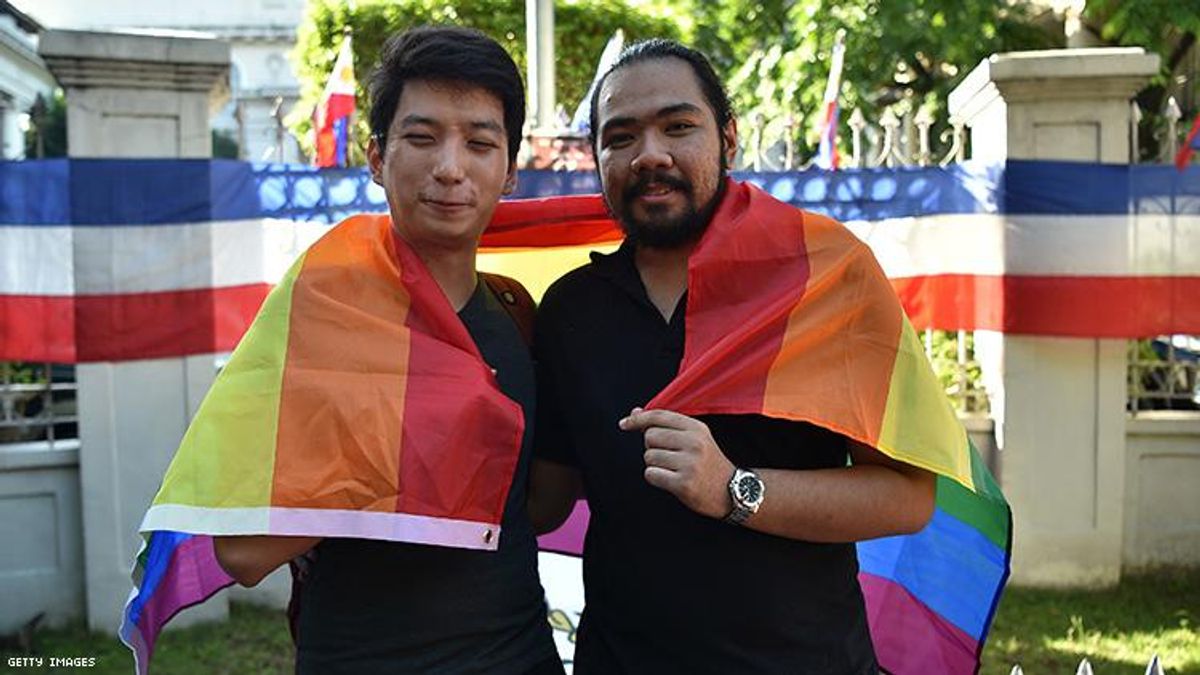All Rights reserved
By continuing to use our site, you agree to our Private Policy and Terms of Use.
A top court in the Philippines has upheld its ban on marriage equality after rejecting a petition to recognize same-sex unions in the archipelago.
In 2015, Jesus Nicardo Falcis III petitioned the Supreme Court to strike down language in Articles 1 and 2 of the Philippines' Family Code defining marriage solely as "a special contract of permanent union between a man and a woman." The plaintiff pointed out that the country's Constitution does not forbid marriages between same-sex couples.
Falcis, who is also a radio show host in the Philippines, told CNN that he decided to fight for legal equality for LGBTQ+ couples because he "suffered from discrimination throughout [his] school years" after coming out at the age of 15.
"I decided to use the tool of litigation, because it has been successful in other countries -- such as the United States -- to have gay marriage legalized," Falcis said.
However, his quest is on hold for now. On Tuesday, the Philippines Supreme Court threw out his case, claiming that he had failed "to raise an actual, justifiable controversy." The court claimed that Falcis lacked the legal standing to argue he had been discriminated against under the Family Code because he does not currently have a same-sex partner he wishes to marry.
In their unanimous ruling, judges also said Falcis and other LGBTQ+ people who joined onto the case would be held in "indirect contempt," claiming the litigants had only filed the complaint for the purposes of propaganda.
Falcis said the court's strident dismissal of his case was "disheartening" given the fact that he had already done the work necessary to answer those potential criticisms of his legal case. According to CNN, at least two same-sex couples have been attached to the petition since 2016.
"They had both previously tried and failed to have their marriage recognized and therefore constituted actual cases, but the court chose to ignore them and to focus on me instead," he told the network.
The Philippines Supreme Court, however, left the door open for a petition to be heard in the future. Judges recognized that Falcis was correct in assering that its Constitution, which was passed in 1987, "does not define or restrict marriage on the basis of sex, gender, sexual orientation, or gender identity or expression."
Falcis has not stated whether he intends to file another petition to the court.
While the Philippines has long been poised to make forward progress on legal recognition for same-sex couples, a civil unions bill has repeatedly stalled in the legislation. Should one move forward, Acting Chief Justice Antonio Carpio signaled last year that the Supreme Court would not oppose it.
Although Philippine President Rodrigo Duterte campaigned in favor of same-sex marriage while running for office, he has flip-flopped on the issue a number of times, coming out against marriage equality and then in favor of civil unions.
Duterte also claims that he used to be gay but was "cured" of his same-sex attractions.
Should the Philippines extend legal recognition to same-sex couples through the courts or its legislature, it would be the second nation in Asia to do so after Taiwan, which legalized marriage equality in May.
RELATED | Discover the Philippines' New Gay Magazine, Titled TEAM




















































































